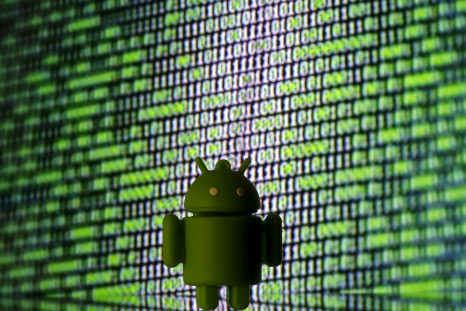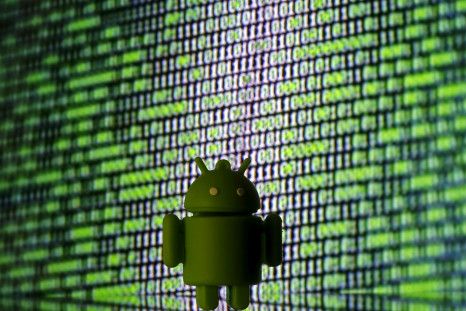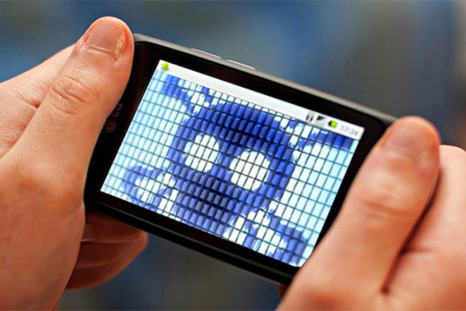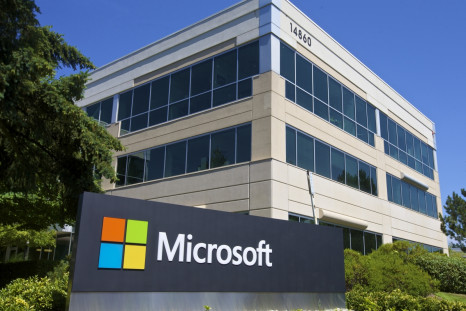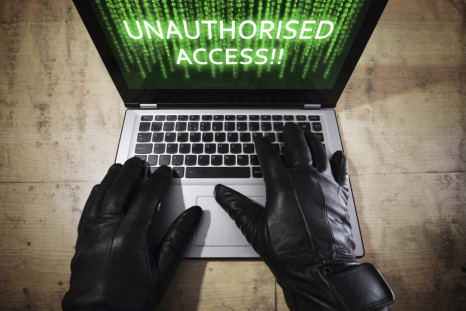Home
> hacking
hacking
Coinhive hacked: Cryptominer's DNS server hijacked to redirect Monero over to hackers
The hackers reportedly had control over Coinhive's domain name for around six hours.
What is the 'IoT Reaper' botnet and how can I stay safe? Everything you need to know
The botnet has now been christened "Reaper" and is said to be expanding at a rapid pace, using unpatched vulnerabilities to infect millions of devices.
LokiBot: Hackers made over $1.5m with new Android banking malware that turns into ransomware
The malware is capable of stealing victims' contacts, reading and sending SMS messages and locking out users from accessing their phones.
Dark Overlord threatens to leak photos of royals and celebs stolen from London plastic surgeon
The London Bridge Plastic Surgery confirmed the hack and the data theft, adding that it is still working on determining what kind of data was compromised.
Third 'Celebgate' hacker charged for breaking into more than 550 celebrities' iCloud, Gmail accounts
So far, the ongoing FBI investigation has resulted in three cases against defendants across the US.
GCHQ cyber squad head says 'significant scale attack' on UK expected in the future
NCSC head Ciaran Martin confirmed that "hostile" nation-state hackers had hit Northern Ireland infrastructure in "significant" attacks.
Rogue password-stealing Android apps on Google Play could hijack your bitcoins
Experts from ESET, a Slovakian antivirus company, said this week (23 October) that both Google and the real Poloniex crypto exchange have been notified.
Anonymous hacks Spanish government websites in 'Free Catalonia' cyber campaign
The Anonymous group is known to use distributed denial of service (DDoS) cyberattacks in order to overwhelm website servers with traffic and force them offline.
Fancy Bear returns: Russian hackers target US cyber conference with booby-trapped file
The two-page file, lifted from the conference's website, was created on 4 October and researchers from Cisco Talos said attacks peaked three days later.
US government says hackers are targeting nuclear, energy and industrial firms in rare public warning
The DHS and FBI said in a joint report that the threat actors are "actively pursuing their ultimate objectives over a long-term campaign".
OSX Proton: Mac malware that allows hackers to spy and steal data spreading via hacked Eltima apps
Hackers infected the installers of the Eltima Player and Folx apps with the Proton malware, which in turn was downloaded by unsuspecting users.
This new botnet could take down the internet - and it's rapidly spreading across the world
Research suggested that the new botnet is evolving at a rapid pace, and could soon be weaponised to launch cyberattacks in the same fashion as "Mirai" last year.
Google Play bug bounty: Hackers offered $1,000 to find vulnerabilities in popular Android apps
The programme encourages researchers to scour for bugs in select popular apps created by Google as well as third-party developers,
Fancy Bear: Russian hackers race to exploit Flash bug against US, Europe before it is widely patched
The zero-day vulnerability, which was previously exploited by the BlackOasis group, was made public and patched on 16 October.
Hacked personal details of millions of Malaysian citizens allegedly for sale online
Malaysian technology website Lowyat reported that the files were offered for sale by an unknown user of its forums.
Spam on the menu at Domino's as hackers fry suppliers' computer system
Don Meij insisted that the firm does not store credit card information on its systems and stressed: "No financial data was accessed in this incident."
'Nearly every citizen' in South Africa at risk after 60 million records leak online
The leaked records contained citizen ID numbers, names, genders, martial statuses, home ownership information, employment details and income data.
Leviathan: Hackers targeting international governments to steal defence and military secrets
The hacker group has been active since 2014 and is particularly interested in naval industries, primarily focusing on targets in the US, Western Europe and the South China Sea.
8 'Minecraft' apps infected with Sockbot malware on Google Play found adding devices to botnet
Symantec researchers said these infected apps were downloaded between 600,000 and 2.6 million times.
Dark Web: Hackers are selling customised ATM malware that comes complete with video tutorials
Hackers have now reportedly launched a new site called ATMjackpot that sells a modified version of CutletMaker, complete with video tutorials on how to successfully exploit it.
Bluetooth butt plug 'hacked and activated' by cybersecurity enthusiast
A researcher has posted video of the Lovense sex toy being sent commands via his computer after what he says began as a 'joke' with another researcher.
More than 30 million South African identities exposed online in massive 27GB data breach
The 27GB-sized cache was titled "MasterDeeds" and contained millions of records. The leaked records reportedly date back to the late 1990s.
Could North Korea be framed for global cyberattacks?
According to reports, the hermit kingdom's hacking unit has swelled to 6,000-people strong - conducting operations even as the country's internet remains weak.
What is Hacker's Door? Old sophisticated Chinese Trojan resurfaces after more than a decade
The newer version of the remote access trojan (RAT) has been updated to run on modern operating systems and 64-bit platforms.
Hackers stole data on critical Windows security bugs - and Microsoft didn't tell anyone
Microsoft believed that no customer was put at risk by the loss of data. As a result, officials decided not to tell the public about the breach.
Adobe Flash vulnerability exploited by BlackOasis hacking group to plant FinSpy spyware
BlackOasis targets various figures involved in Middle Eastern politics, including people in the UN, opposition bloggers, activists and regional news reporters, researchers said.
Lazarus: North Korean hackers suspected to have stolen millions in Taiwan bank cyberheist
Security experts say the attack was reminiscent of the infamous $81m Bangladesh Bank cyberheist, with similar malware and hacking tools used.
We Heart It hacked: Personal data of more than 8 million accounts compromised in data breach
The company said it was alerted by Troy Hunt, security expert and founder of the data breach notification website Have I Been Pwned.
Taxpayers targeted by spam emails posing as HMRC to take control of computers
The spam email campaign was sent from domains that closely resembled those used by the legitimate HMRC – in this case it was using hmirc-gov.co.uk, Trustwave experts said.
Pizza Hut hack: Thousands of customers' data stolen as users report fraudulent card transactions
Pizza Hut said that its website was compromised and hackers stole some of its customers' card data between 1 and 2 October.




